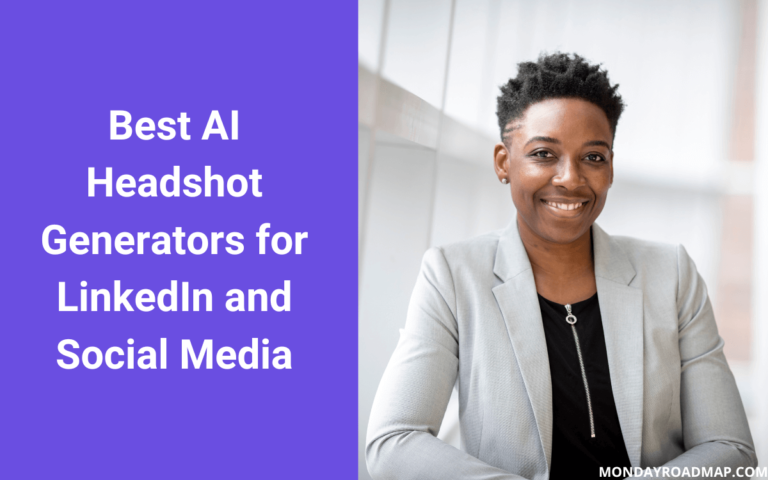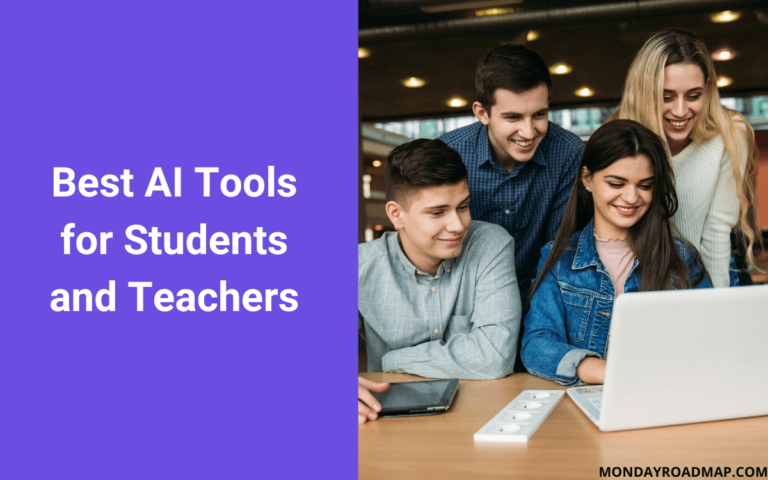What Is AI Marketing and How Can You Use It in Your Business?
Ever since generative AI tools like ChatGPT and Midjourney came bursting onto the scene in 2022 – astounding us all with their incredible capabilities – the digital marketing world has been buzzing about AI. And it’s not just hype, either – one HubSpot study found that AI tools save the average marketing professional almost 2.5 hours per day on routine tasks, essentially doubling their productivity. (This equates to an extra 12.5 hours per week, or an extra 25-26 workdays per year!)
Machine learning and natural language processing are revolutionizing how we engage with audiences, understand their preferences, and predict their behaviors.
While there are still many unknown variables in the AI marketing landscape, forward-thinking digital marketers are clambering to reap the benefits of AI, such as better targeting, precise personalization, and smarter analytics – all while saving time and resources.
This post gives a high-level overview of AI in marketing, showing how these advanced technologies can become a powerful ally in your business.
We cover common use cases, benefits, and potential pitfalls of using AI in your own marketing strategies, as well as top considerations for getting started with this powerful and fast-evolving technology.
Let’s get started.
What is AI marketing?
AI marketing is the inclusion of artificial intelligence in a marketing strategy. It leverages a variety of tools that tap into the power of machine learning and deep learning.
These tools are designed to analyze a vast amount of data at a speed that no human could hope to match. They can uncover trends, make predictions, offer insights, and even create new content from scratch.
What’s more, they can continually self-optimize, adapting and learning from new data as it comes in.
By using AI in your marketing, you’ll not only gain a strategy advantage, but you can also save a tremendous amount of time and resources that can be invested back into your business.
(For examples of some of the top players in the AI market today, check out our post on the best AI affiliate marketing programs.)
AI marketing types, use cases, and examples
In this section, we’ll look at examples of how digital marketers are using artificial intelligence to gain a competitive edge.
Content generation
For most marketers, content creation is up there with their most time-consuming and expensive tasks. But thanks to generative AI tools like ChatGPT, Jasper, and Midjourney, that’s about to change. In fact, there’s a whole new industry springing up around ways to make money with ChatGPT in particular.
In addition to content creation, generative AI can also help with idea generation, content planning, content repurposing, and more.
Here are some common types of generative AI and other content creation tools you may want to consider including in your own marketing efforts:
- AI writing software. These can draft everything from ad copy to blog posts. In addition, they can come up with creative ideas and rewrite content.
- Social media post generators. These can generate months’ worth of social media posts and graphics in just a few minutes. In some cases, they can even schedule them automatically.
- AI video generators. These tools make it easy for anyone to create engaging videos with minimal input.
- AI art generators. These create visual assets that rival top stock photos at a fraction of the cost, eliminating the need for a graphic designer.
Although these tools are still far from perfect, they’re quickly getting better with time. By learning how to use them, digital marketers can save money and free up time to focus on more strategic marketing decisions.
SEO
AI SEO tools like Surfer SEO and MarketMuse offer a powerful advantage for marketing teams and agencies. These tools can automate your on-page SEO workflow and take the guesswork out of content planning.
Many of these tools provide NLP keywords and real-time content scores, helping you write comprehensive articles that align closely with searcher intent.
They may also give you access to more data, such as keyword and topic clusters, SERP analyses, and content audits – a major benefit when planning your editorial calendar and working to build topical authority.
Digital advertising
In the realm of digital advertising, AI can play a significant role in helping you target your audience more precisely.
A typical use case is programmatic advertising, where AI tools automate the buying and placing of highly targeted ads based on data about your customers. These platforms efficiently manage your media buys on autopilot, increasing the value you get from your ad spend.
When it comes to Facebook and Google ads, AI software can help you manage and optimize various types of campaigns, ensuring that your message reaches the right people at the right time.
Some tools, such as Pencil, can even generate and split-test new ad creatives for your campaigns.
Chatbots
For many online businesses, chatbots are essential to providing a timely and consistent customer service experience. They can answer customer questions, resolve issues, and even nurture leads.
AI-powered chatbots leverage natural language processing, making them much more advanced than their rule-based counterparts. They can analyze and understand complex queries to provide a more personalized response.
They also learn from customer interactions over time, continually improving their ability to predict customer needs and provide satisfactory answers. This leads to increased customer engagement and, ultimately, more sales.
Email marketing automation
With the help of email marketing automation platforms, AI technology can keep prospects engaged and improve existing customer relationships on autopilot. Here’s how:
- Smart segments. Through machine learning algorithms, AI can automatically segment subscriber lists based on various criteria. It can then tailor content to fit each customer’s preferences and interests – for instance, by offering personalized product recommendations – making your marketing campaigns more relevant.
- Predictive sending. AI can also determine the best time to send emails, resulting in higher open and click-through rates.
- Subject line optimization. Some AI tools help you craft compelling subject lines that entice your target audience to click on your emails.
- Predictive analytics. AI can predict future customer actions based on past behaviors, helping you anticipate trends and adjust your marketing efforts accordingly. The ability to predict rather than react can transform your entire marketing strategy, resulting in improved engagement and conversions.
One notable example I’ve seen of using AI in email marketing is Matt Zimmerman from Ranking Tactics, creator of ZimmWriter. His SEO and marketing newsletter uses IBM Watson’s AI to tailor his email newsletter to each subscriber’s preferences.
Lead research and cold outreach campaigns
Cold email outreach is essential if you want to launch a software product, build quality backlinks, or find podcast opportunities.
AI tools can help you quickly build your prospect database by scraping LinkedIn profiles and other websites, collecting data points such as names, titles, email addresses, and social media handles.
Some tools also create personalized emails and follow-ups using customized snippets based on information from a prospect’s LinkedIn profile.
Other AI platforms can automate not just the initial outreach but also follow-up sequences, saving you time and increasing the success of your cold outreach campaigns.
Conversion rate optimization
We’ve already seen how AI marketing can improve conversion rates in the areas of customer service, digital advertising, and email marketing.
But what about in the context of split-testing landing pages? Here are several ways AI and machine learning algorithms can help:
- Analyze landing page performance and suggest improvements
- Generate new variations of landing pages based on user behavior and preferences
- Continuously test multiple variations, identify the most effective elements, and optimize future campaigns based on the results
- Use heatmaps and user behavior analysis to optimize the layout and design of landing pages
- Implement dynamic pricing optimization based on real-time data
Branding and design
In recent months, AI has made an impressive foray into the realm of branding and design.
For example, AI business name generators can help you come up with creative ideas for business names. (I actually named my latest blog with the help of ChatGPT.)
Then there’s AI-powered tools like Looka that can create an entire brand kit for your business based on your personal taste. From professional-looking logos to templates for flyers, business cards, and social media posts, you can generate all the marketing materials you’ll ever need for your business in just seconds.
Other tools can help you select brand color palettes, font combinations, and other design elements to make your website and digital marketing campaigns stand out.
And if you need high-quality images, AI art generators have you covered. Platforms like Midjourney and DALL-E 2 can produce images comparable to top-tier stock photos at a much lower cost.
Today, even website design can be automated with AI website builders.
All of this makes it possible for almost anyone to offer a cohesive brand experience without hiring a brand designer, graphic designer, or web developer.
Data analytics
AI in marketing plays a crucial role in making sense of all that data that’s piled up from past campaigns. It can analyze customer data from a wide range of sources, including your website, social media, and other digital marketing campaigns – and it does so in a fraction of the time it would take a human.
Predictive analytics is one such application of artificial intelligence. It can forecast customer behavior, allowing you to personalize your approach and adjust course proactively as well as reactively. For instance, you can use AI to predict next order dates, churn risk, spending potential, and more.
These insights can help you identify high-value customers early on and direct your efforts to reach similar types of customers.
Benefits of AI marketing
Getting buy-in for new marketing programs can be a challenge at the best of times. AI in particular is a technology that’s plagued with uncertainty, skepticism, and even fear at times.
To get your team excited about everything AI marketing has to offer, it’s important to lead with the benefits. Here are three:
Scalability
The real draw of artificial intelligence is that we know it can be transformative in helping businesses scale. From simple task automation like writing emails to more advanced applications like dynamic pricing, AI can free up valuable time for marketing teams to focus on more strategic initiatives.
This automation also leads to cost savings by reducing the need to hire outside help such as freelance writers and other contractors.
In addition, AI can provide marketing teams with data that enriches digital marketing efforts and boosts ROI. So, not only does it save time and money, but it also contributes to business growth and profitability.
Content personalization and improved customer experience
AI-powered data analysis can take customer engagement to a whole new level thanks to its ability to tailor content to individual customers’ preferences.
For instance, you might use AI to display personalized product recommendations or news articles, send marketing emails based on customer interests, or adapt the layout and design of a website or app to fit each visitor’s tastes.
All this personalization can lead to increased sales, higher customer satisfaction and retention, and more referrals.
Data-driven, strategic marketing
AI tools can process and interpret tremendous amounts of data, identifying market trends quickly and allowing you to adjust your marketing efforts in real time. This means your strategy can be data-driven and proactive.
Quick responses to market changes are essential in the fast-paced world of digital marketing. As an early adopter of AI, you’re at an advantage: Many businesses are slow to incorporate new technologies, so by getting a head start, you can overcome the learning curve much sooner than stagnant competitors.
Potential challenges of AI marketing
Now let’s look at some potential challenges of AI in the context of digital marketing, as well as some possible solutions for mitigating or eliminating them entirely.
Content quality
Generative AI brings a new set of challenges for content marketing teams in particular.
One very real issue is the accuracy and up-to-dateness, or lack thereof, of some AI-generated content. For instance, GPT-4 only has knowledge of events up to its September 21 data cutoff.
There’s also the fact that AI is prone to occasional hallucinations – that is, when an AI model invents information, seemingly out of thin air, stating it with complete confidence.
Also, AI-generated content can sometimes sound robotic (or, on the other end of the extreme, way too cheesy) and lack a human touch.
Finally, many content marketers are trying to settle the question of whether AI content detectors like Originality.ai still hold any weight now that Google has stated that AI content is permitted.
The good news is that with careful planning, you can anticipate and mitigate most of these issues with the following tips:
- Consider using AI content generators or language models that offer up-to-date information and/or citations, such as Google’s Bard.
- Give the AI language model or writing assistant a priming prompt that includes guidelines on brand voice.
- Create a detailed content brief and write the content one subheading at a time instead of all at once. This approach results in higher-quality output.
- Make sure your content follows Google’s E-E-A-T guidelines for AI content (experience, expertise, authoritativeness, and trust).
- Ensure that your writers and editors fact-check all AI-produced content before publishing.
- If you’re feeling uncertain about how Google will ultimately treat AI content regardless of their official statement, consider using AI writing software that’s designed to pass AI content detection, such as Content at Scale. Or, hire content editors to manually rewrite AI content at a lower cost than writing it from scratch.
Learning curve
AI marketing is a rapidly changing field with new tools coming out daily and many unknown variables. A culture of experimentation and continual learning will help your team adapt and stay ahead of the curve.
One cost to factor in is the time you’ll spend training team members and freelancers for new roles or software platforms.
For example, you might choose to replace the role of “content writer” with that of “AI content editor.” This person would fact-check AI-generated content and edit it to follow Google’s E-E-A-T guidelines. They might also be responsible for optimizing the content in a tool like Surfer SEO.
Privacy of customer data
AI systems rely on vast amounts of data, which often includes sensitive personal information.
It’s essential that you thoroughly vet AI partners and choose tools that are compliant with GDPR and other regional data privacy laws.
It’s important to note that even if tools are compliant, there are additional considerations and technical challenges around ethics and transparency. Customers may not be comfortable with their data being used to train certain types of AI systems, for instance.
If your case is complex, you’ll need to seek legal advice. In general, keep the following tips in mind:
- When choosing new AI partners, read user reviews on sites like TrustPilot and ask for testimonials
- Make sure tools have end-to-end encryption and other security features
- Regularly audit your tech stack to ensure data privacy standards are being met
- Ensure your marketing team stays abreast of changes in data protection laws
How to build artificial intelligence into your marketing strategy
In this section we’ll look at three important components of implementing an AI marketing strategy.
Set AI marketing goals and KPIs
When building artificial intelligence into your digital marketing programs, one approach is to start by pinpointing areas that need the most improvement – for example, your social media presence, brand reputation, or customer service experience.
Then, explore the various ways that AI marketing can provide a solution. Using customer service as an example target for improvement, you might consider implementing chatbots or AI-powered surveys.
Finally, identify your KPIs so that you can track the success of your marketing efforts before and after the implementation of AI. Continuing with our customer service example, your KPIs might include:
- First response time (FRT)
- Chatbot resolution rate
- Customer satisfaction scores like CSAT, NPS, or CES
- Engagement rate
- Survey response rate
KPIs will vary depending on your business objectives. The most important thing is that they align with your overall goals and provide clear insights into your performance.
Assemble your AI tech stack
Once you’ve set your AI marketing goals, you can start assembling your AI tech stack. Because things are changing outrageously quickly in this arena, prepare to be flexible and pivot as you learn more about what works best for your team.
(Case in point: In the SEO and affiliate marketing communities, I see many folks swapping out their “favorite” AI writing and content optimization tools every other week!)
Follow these tips to get started:
- Determine your budget. AI tools vary widely in cost. Knowing your budget can help you narrow down your options and prevent overspending.
- Prioritize ease of use. You’ll get more value out of your AI tools if your team is motivated to actually use them. Look for an intuitive interface, good user documentation, and responsive customer support.
- Verify compatibility with your existing tech stack. Your AI tools need to play nicely with the other software in your tech stack. Check that your top picks integrate with your existing systems. Many platforms are compatible with Zapier, which can help you connect your other software without any coding. Other platforms offer APIs for customized integrations, enabling your systems to communicate and work together effectively.
- Consider the learning curve. Enterprise tools in particular can be complex. Be prepared to invest time in training your team or possibly hiring outside consultants with the right skill sets.
- Ensure data privacy. Any tool you consider should be compliant with relevant data privacy laws like GDPR. Check how the tool collects, stores, and uses data.
- Test before committing. Whenever possible, take advantage of free trials or demo versions. This allows you to test the tool’s capabilities and how well it fits into your operations before making a financial commitment.
- Look for scalable solutions. As your business grows and evolves, your tools need to keep up. Look for platforms that can handle an increasing workload as your business expands.
Develop policies and systems
Creating clear policies around the use of AI in marketing is essential for effective and ethical implementation. These policies should outline how your team interacts with AI tools and how you plan to maintain data privacy.
You’ll also need to develop systems and processes to streamline your AI marketing strategies. These systems should be easy for your team to access and update as AI tools and tactics develop.
For instance, you could create a workflow or checklist to ensure content quality when using AI to write blog posts. This might include a rigorous fact-checking process or a target ratio of AI- to human-generated content.
What is an AI marketing tool?
An AI marketing tool is software that uses artificial intelligence to automate, optimize, and improve marketing tasks.
These tools use machine learning and natural language processing to help marketing teams make more informed decisions. For example, digital marketers may leverage AI marketing tools to analyze customer behavior, personalize content, or predict future trends.
Will AI marketing tools replace digital marketers and content creators?
AI marketing tools, contrary to some fears, will likely never completely replace digital marketers. While AI is great at tasks like data analysis and automating repetitive tasks, it still lacks the creative intuition and emotional intelligence that humans bring to the table.
At its core, marketing is about strategy and making authentic connections with real people – tasks that will always require a human touch.
Instead of fearing AI, successful marketers will learn how to use it to augment their existing talents, automating the boring stuff and becoming more effective in their roles. And hopefully make a lot of money in the process.
Conclusion
AI marketing doesn’t just keep your business up-to-speed: It can push you rapidly ahead, increasing your productivity, optimizing the customer experience, and boosting conversions at inhuman speeds.
In addition, by taking the grunt work off your plate and providing invaluable insights, it can empower you to focus on the creative, strategic elements of marketing that really make a difference.


![7 Best AI Writing Software Tools Compared [2023]](https://www.mondayroadmap.com/wp-content/uploads/best-ai-writing-tools-768x480.png)



